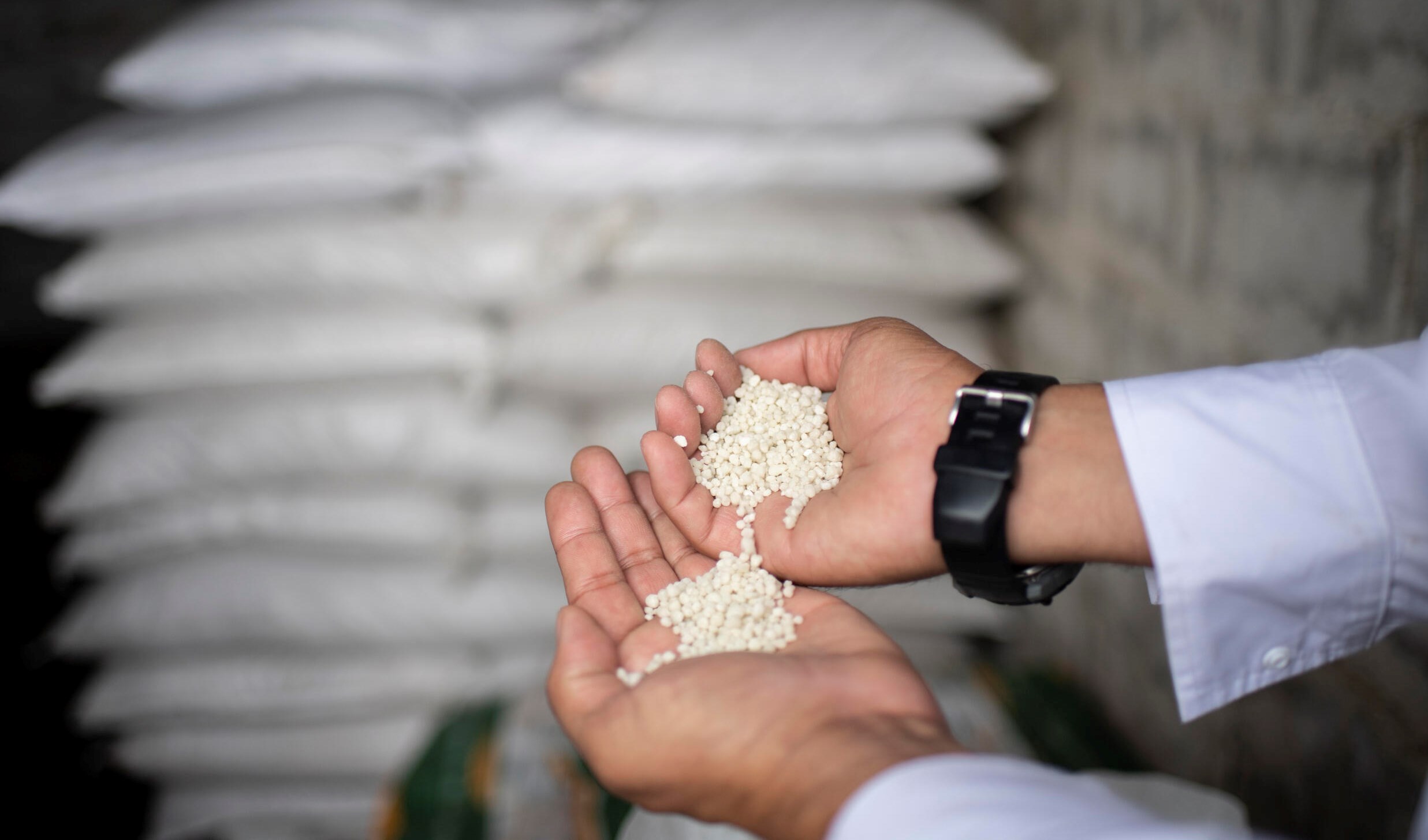US imports of Russian fertilizer increase, hit record high of $944mln
Russia is considered the second largest fertilizer supplier to the US, followed by Canada which provided for the amount of $2.8 billion during the same time frame.
-

A Venezuelan farmer in the western town of Turen shows some imported Russian fertilizer (AFP)
According to data from a US statistical service reviewed by Sputnik, an increase in Russian fertilizers purchased by the US reached a record $944 million in January-July.
The last high was back in 2022 when the amount of purchases in seven months hit $900 million, and this year, the value increased by 5%.
However, purchases in July fell thrice compared to data in June and almost 40% year-on-year to $54.4 million - the lowest figure since August 2021.
From January to July, Russia was considered the second largest fertilizer supplier to the US, followed by Canada which provided for the amount of $2.8 billion during the same time frame. Then, it was Saudi Arabia ($484.4 million), "Israel" ($216 million) and Qatar ($214.2 million).
In the time span of the aforementioned seven months, the US cut down on fertilizer imports by 22% and exports by 36%.
Read more: West regrets refusing Russian fertilizers: Senior Russian Official
Germany hits the next record
The US isn't the only Western nation that reached a record high in Russian fertilizer imports.
The German statistical office revealed this month that its imports of Russian fertilizers increased 3.3-fold to a record $151.3 million in the first half of 2023 - up from an average of $45.5 million in the previous five years.
This is the highest figure since at least 2008 when Germany began publishing data on fertilizer imports, as the previous record of $105.2 million in fertilizer imports from Russia was set in 2016, with a record high of 395,000 tonnes.
This year, Germany's purchases of Russian fertilizers increased by 2.8 times to 361,500 tonnes, marking the second-largest amount of fertilizer imports from Russia ever recorded.
As for the grain imports and the Black Sea grain deal, Russian Foreign Minister Sergey Lavrov stated last week that Russia is prepared to rejoin the deal on the same day that its conditions for exporting its grain and fertilizers to global markets are met.
This development comes after Russia withdrew from the agreement in July, just a year after it was brokered by the United Nations and Turkey. The primary grievances cited were obstacles faced by Russian food and fertilizer exports and the inadequate distribution of Ukrainian grain to countries in need.
Read next: US sanctions blocking entry of direly Russian fertilizers to Syria

 3 Min Read
3 Min Read








